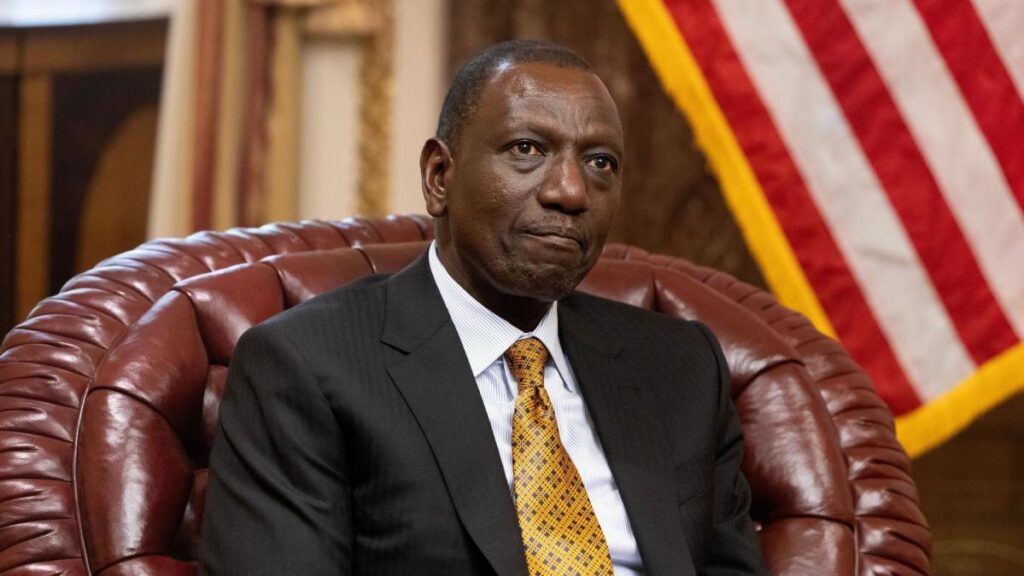The choices facing the Kenyan president William Ruto are now far from simple.
The man elected in 2022 promised to reduce corruption, support the country’s faltering economy and help the poor. The embattled Mr Ruto now faces an unprecedented revolt against his Finance Bill – legislation he says is an essential part of his nation-building plan.
It might be easier to know which way to go if the opposition Ruto faced was confined to parliament.
Ruto is an astute political player and served as deputy president for almost a decade before being elected to the top position. He has years of experience in mediating in politics to get things done.
But now the forces uniting against him are something he truly has no control over.
A mass movement that grew organically from discontent expressed on social media has grown into a powerful rebellion that has filled the streets of cities and towns across the country.
In the capital, the Nairobi governor’s office, the city hall and the country’s parliament were set on fire this afternoon.
The demonstrators had started the day by threatening a “total shutdown”.
And at the end of a day of chaos and panic across the country, often to the sound of tear gas and sometimes live fire from police, there is no doubt that their anger has been heard.
For Ruto, the choice now appears to be about giving in to the protesters and abandoning his budget, or pushing through with it, risking more unrest and bloodshed on the streets.
He has argued that the raft of new taxes is essential to keep Kenya’s debt under control – a whopping sum of more than $80 billion, costing the country more than half of its annual tax revenue.
Kenya managed to restructure its international debt burden earlier this year – something that immediately led to a rise in the value of its currency, the shilling.
Mr Ruto is increasingly seen as one of Africa’s leading statesmen and recently returned from a state visit to the White House. He understands how important it is for his country’s economy to avoid defaulting on its debts.
For those in his government, the calculation was that controlling the state’s finances by increasing the tax burden was preferable to cutting public services.
The financing bill, which was set to become law Monday, originally brought dozens of new or increased taxes on everything from car ownership and financial transactions to sanitary pads.
Several of the most controversial taxes have already been abolished after consultation with the public.
But the budget controversy follows other revenue-raising measures introduced by Ruto, including higher taxes on healthcare and cheap housing.
And for those living on the streets, there is a third solution available to the government, besides cutting services or raising taxes.
Many blame the country’s financial problems on corruption, with taxpayers wary of paying more due to a lack of confidence in the state’s transparency.
For Mr Ruto, it is perhaps the shadows of this past that make his current position so difficult.
He rose from deputy presidency to president in the 2022 elections, and with a focus on green energy and technology, he has certainly come up with new ideas about where he wants to take Kenya.
But for many on the street, Ruto’s record as a senior figure in government during a period marred by corruption means it is difficult to trust him with their taxes.
Tuesday’s events in Nairobi now appear to have Ruto in a tight spot.
Faced with condemnation for what many Kenyans see as a heavy-handed response to street protests, he must now choose whether to stick to his budget or find another route to securing financial security for Kenya.
In the meantime, those who came out to make their voices heard in Nairobi and across the country show no sign of giving up.
When Ruto addressed the nation in his inauguration speech, he spoke directly to the politically active youth of the country.
“My political journey,” he told them, “began the same way as a young campaign volunteer, fresh out of college.
“Your experience and lessons learned should form the basis of your leadership journey.”
Now it faces a youth-led movement that many say poses the biggest challenge to Kenya’s rule since the country’s independence in 1963.
The coming days will be crucial for Ruto as he faces difficult choices for his government and the country.

